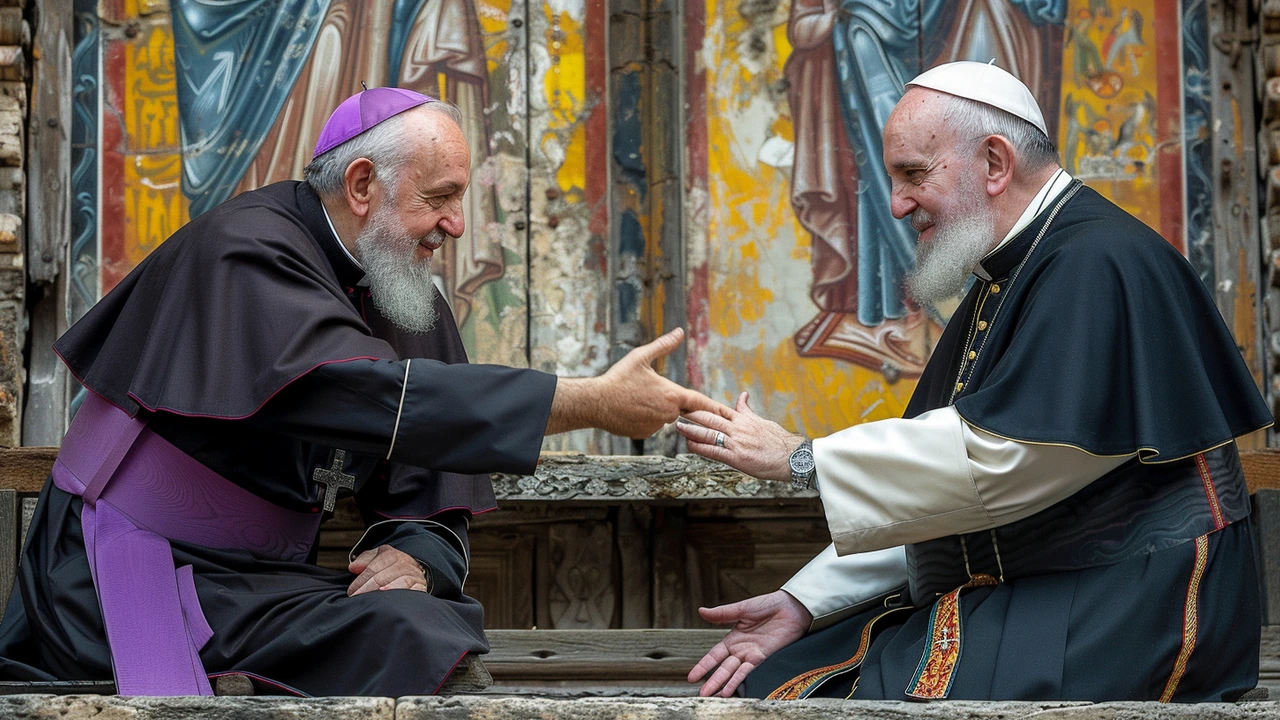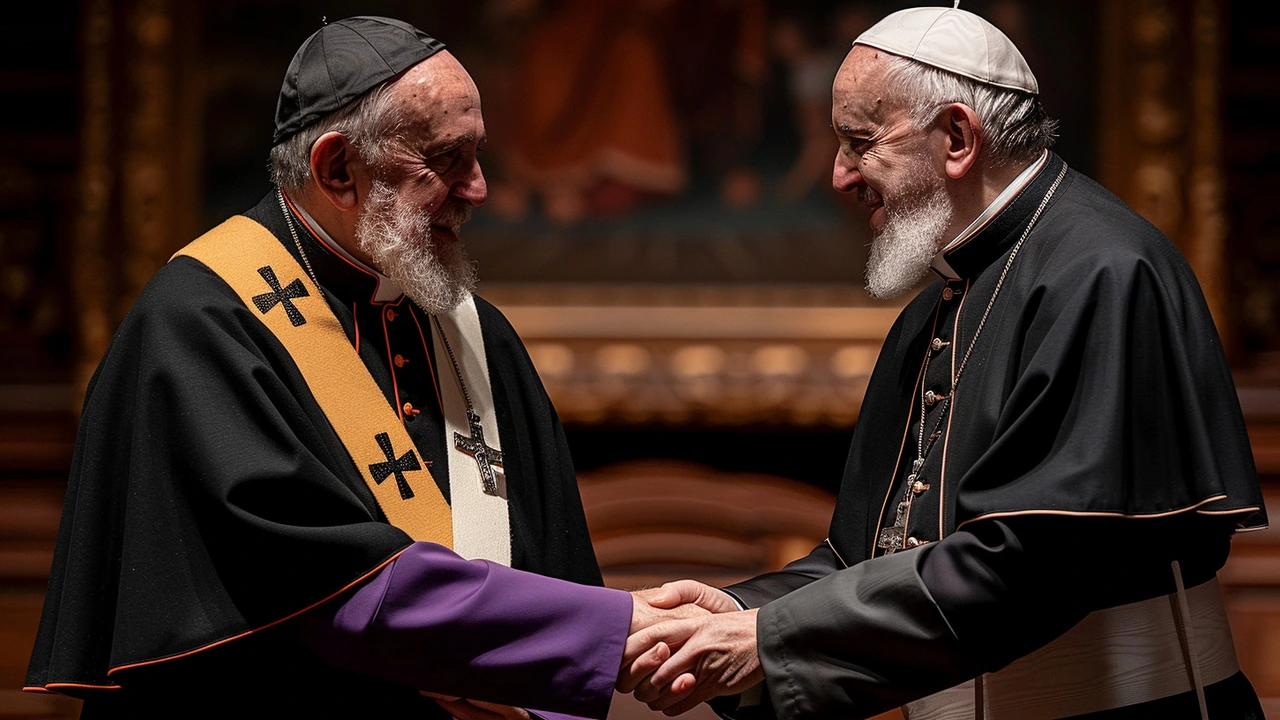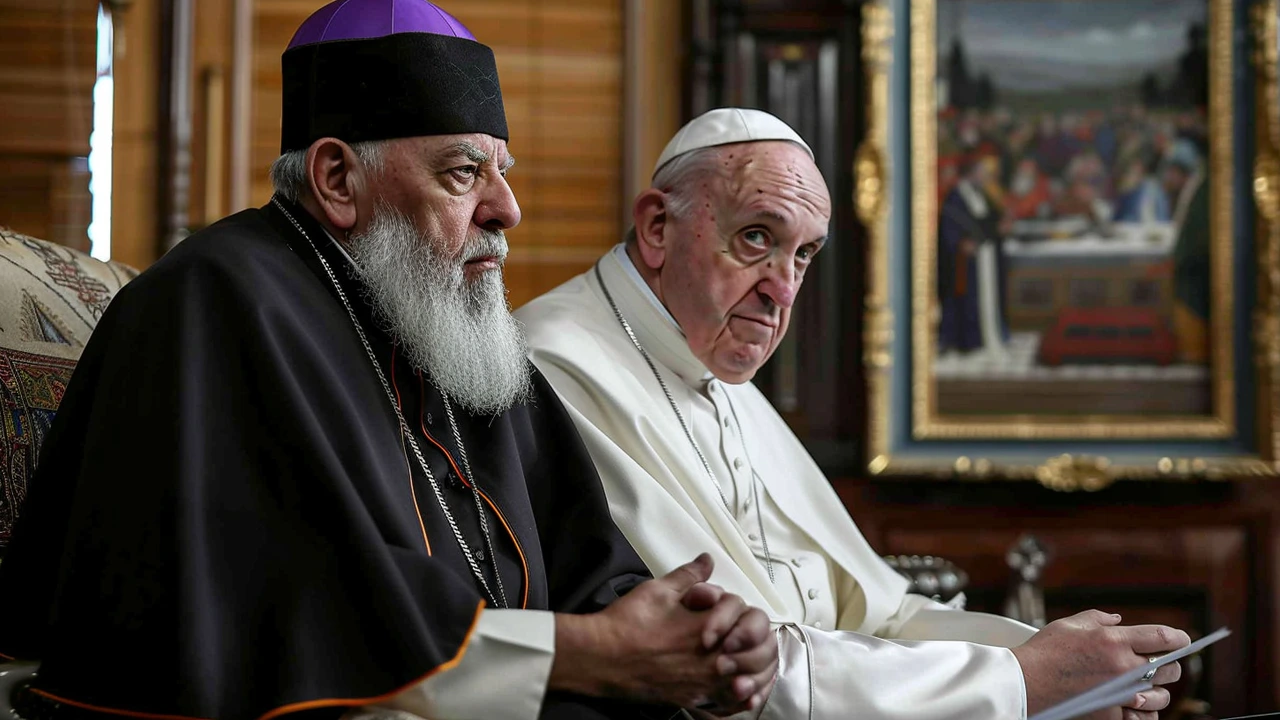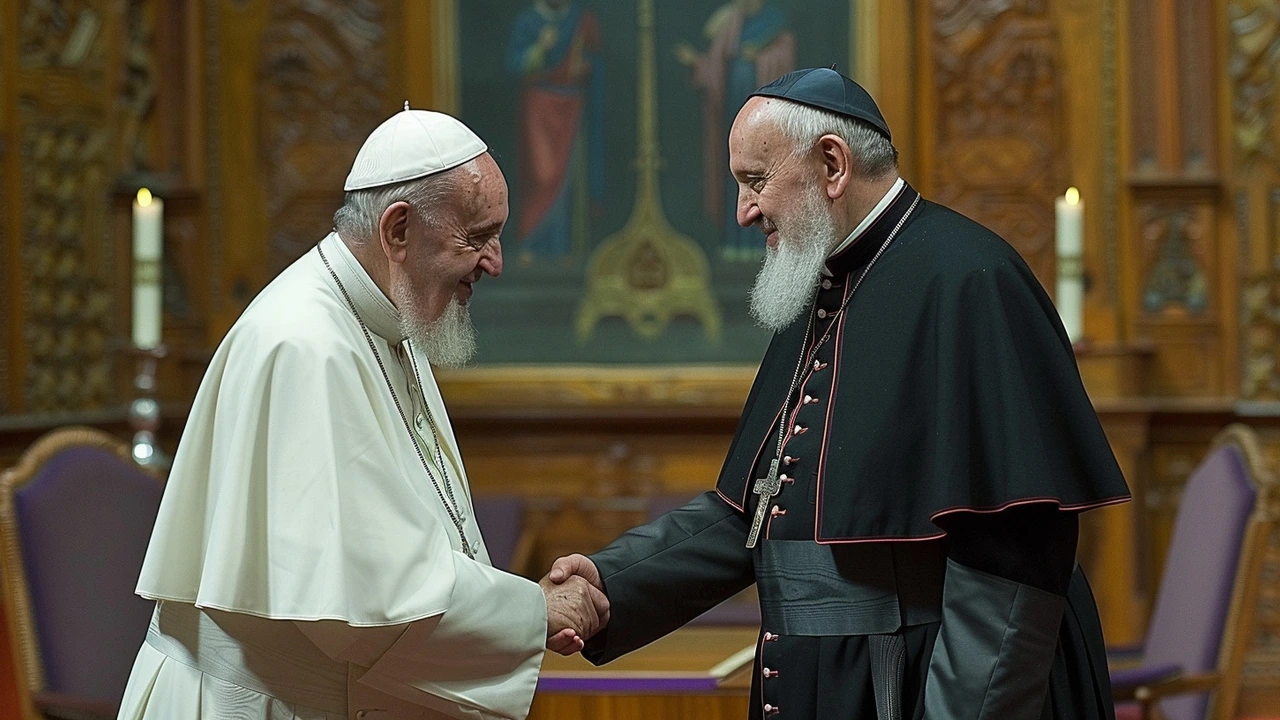The Vatican recently became the stage for a profound discussion between two influential religious leaders: His Holiness Catholicos of the Great House of Cilicia Aram I and His Holiness Pope Francis. Their meeting focused on numerous pressing issues that have long-standing implications for both Armenian communities and the broader Christian world. The dialogue held at the heart of the Catholic Church underscores a commitment to fostering ecumenical unity and addressing geopolitical challenges faced by Armenians.
Strengthening Ecumenical Relations
One of the pivotal subjects of the meeting was the necessity to broaden and transform ecumenical relations into a true partnership. Over the years, the quest for Christian unity has seen significant progress. Still, recent global challenges highlight the urgent need for a more profound and collaborative approach among the world's Churches. Both leaders emphasized the critical importance of mutual understanding and cooperation in the contemporary religious landscape. By nurturing deeper ties, it is hoped that Christians worldwide can present a united front on pivotal social and moral issues.
Common Celebration of the Holy Resurrection
Another significant point of discussion was the ambition to establish a common date for the celebration of the Holy Resurrection. The disparity in the observance of this central Christian feast has been a longstanding theological and liturgical issue. By uniting on a common date, not only would the Christian message of the Resurrection be strengthened, but it would also symbolize a significant step towards ecclesiastical unity. This initiative has the potential to bridge centuries-old divides and foster a sense of global Christian solidarity.

Third Vatican Council: An Inclusive Vision
The conversation also touched upon the potential convening of a Third Vatican Council. Both Aram I and Pope Francis stressed the importance of including active participation from non-Catholic churches. Previous councils have significantly shaped the trajectory of the Church, but the inclusion of a wider range of voices could mark a new chapter in the ecclesiastical discourse. An inclusive council could address contemporary challenges more effectively by harnessing diverse theological insights and perspectives.

Christian-Muslim Coexistence in Lebanon
Given Lebanon's unique socio-political landscape, the discussion on strengthening Christian-Muslim coexistence was particularly relevant. Lebanon has long been heralded as a model of religious pluralism in the Middle East. However, recent economic and political crises have strained this delicate balance. By advocating for enhanced interfaith dialogue and cooperation, the leaders underscored the importance of preserving Lebanon's rich tapestry of religious diversity. Such efforts are crucial in maintaining peace and stability in the region.
Presidential Election in Lebanon
In parallel with religious coexistence, the leaders emphasized the urgent need to address the political stalemate in Lebanon. The election of a new president is seen as a critical step in navigating the country out of its current crisis. Political stability is seen as a prerequisite for addressing broader social and economic issues, and the spiritual leaders called upon Lebanese politicians to prioritize national unity and the common good over sectarian interests.

Armenian Political Prisoners and Artsakh Issues
The dire situation of Armenian political prisoners held captive in Azerbaijan was another pivotal topic. With increasing international awareness about the plight of these individuals, the meeting aimed to amplify calls for their immediate and unconditional release. Ensuring the safe return of indigenous Artsakh Armenians to their homeland under international protection was also highlighted. This discussion builds on Pope Francis's earlier appeals for peace and justice in the Nagorno-Karabakh region, particularly supporting displaced families seeking refuge.
This deeply significant meeting between His Holiness Catholicos Aram I and Pope Francis shows the importance of religious unity and the practical steps needed to achieve peace and justice in tumultuous regions. Through addressing these multifaceted issues, both leaders aim to inspire hope, promote dignity, and enhance the well-being of communities in need. Their commitment to these causes underscores a broader mission of fostering a just and harmonious global society.
In conclusion, this meeting not only highlighted the shared values and concerns of the Armenian and Catholic churches but also sets a path for collaborative efforts in addressing global challenges. By focusing on unity, mutual respect, and proactive dialogue, the dialogue by Aram I and Pope Francis offers a beacon of hope for achieving peace and understanding in a divided world.
